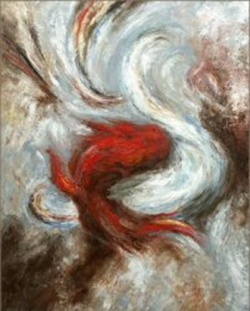Difference between revisions of "Sakkāya-ditthi"
Jump to navigation
Jump to search
m (1 revision: links) |
|||
| Line 1: | Line 1: | ||
[[File:GoodAndBad.jpg|thumb|250px|]] | [[File:GoodAndBad.jpg|thumb|250px|]] | ||
| − | 'personality-belief', is the first of the [[10 fetters]] (samyojana). | + | '[[personality-belief]]', is the first of the [[10 fetters]] ([[samyojana]]). |
| − | It is entirely abandoned only on reaching the [[path]] of [[Stream-winning]] ([[sotāpatti-magga]]; s. ariya-puggala). | + | It is entirely abandoned only on reaching the [[path]] of [[Stream-winning]] ([[sotāpatti-magga]]; s. [[ariya-puggala]]). |
| − | There are 20 kinds of [[personality-belief]], which are obtained by applying 4 types of that [[belief]] to each of the 5 groups of [[existence]] (khandha): | + | There are 20 kinds of [[personality-belief]], which are obtained by applying 4 types of that [[belief]] to each of the 5 groups of [[existence]] ([[khandha]]): |
| − | * (1-5) the [[belief]] to be identical with corporeality, [[feeling]], [[perception]], [[mental formations]] or consciousness; | + | * (1-5) the [[belief]] to be [[identical]] with corporeality, [[feeling]], [[perception]], [[mental formations]] or [[consciousness]]; |
* (6-10) to be contained in them; | * (6-10) to be contained in them; | ||
| − | * (11-15) to be independent of them; | + | * (11-15) to be {{Wiki|independent}} of them; |
| − | * (16-20) to be the owner of them (M.44; S.XXII.1). | + | * (16-20) to be the [[owner]] of them (M.44; S.XXII.1). |
See prec., [[ditthi]], [[upādāna]] 4. | See prec., [[ditthi]], [[upādāna]] 4. | ||
Revision as of 08:23, 1 April 2014
'personality-belief', is the first of the 10 fetters (samyojana).
It is entirely abandoned only on reaching the path of Stream-winning (sotāpatti-magga; s. ariya-puggala).
There are 20 kinds of personality-belief, which are obtained by applying 4 types of that belief to each of the 5 groups of existence (khandha):
- (1-5) the belief to be identical with corporeality, feeling, perception, mental formations or consciousness;
- (6-10) to be contained in them;
- (11-15) to be independent of them;
- (16-20) to be the owner of them (M.44; S.XXII.1).
